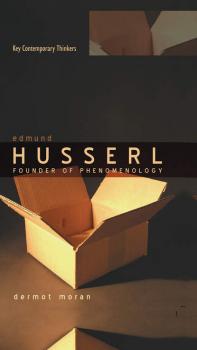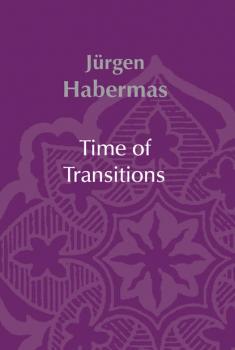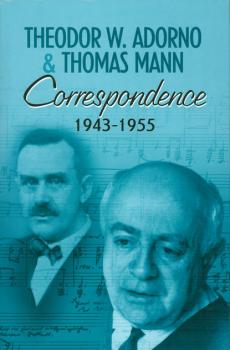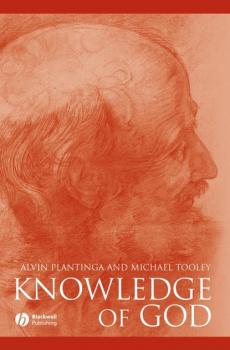ТОП просматриваемых книг сайта:
Философия
Различные книги в жанре Философия, доступные для чтения и скачиванияАннотация
Neil Gascoigne provides the first comprehensive introduction Richard Rorty’s work. He demonstrates to the general reader and to the student of philosophy alike how the radical views on truth, objectivity and rationality expressed in Rorty’s widely-read essays on contemporary culture and politics derive from his earliest work in the philosophy of mind and language. He avoids the partisanship that characterizes much discussion of Rorty’s work whilst providing a critical account of some of the dominant concerns of contemporary thought. Beginning with Rorty’s early work on concept-change in the philosophy of mind, the book traces his increasing hostility to the idea that philosophy is cognitively privileged with respect to other disciplines. After the publication of Philosophy and the Mirror of Nature, this led to a new emphasis on preserving the moral and political inheritance of the enlightenment by detaching it from the traditional search for rational foundations. This emerging project led Rorty to champion ‘ironic’ thinkers like Foucault and Derrida, and to his attempt to update the liberalism of J. S. Mill by offering a non-universalistic account of the individual’s need to balance their own private interests against their commitments to others. By returning him to his philosophical roots, Gascoigne shows why Rorty’s pragmatism is of continuing relevance to anyone interested in ongoing debates about the nature and limits of philosophy, and the implications these debates have for our understanding of what role the intellectual might play in contemporary life. This book serves as both an excellent introduction to Rorty’s work and an innovative critique which contributes to ongoing debates in the field.
Аннотация
Dermot Moran provides a lucid, engaging, and critical introduction to Edmund Husserl's philosophy, with specific emphasis on his development of phenomenology. This book is a comprehensive guide to Husserl's thought from its origins in nineteenth-century concerns with the nature of scientific knowledge and with psychologism, through his breakthrough discovery of phenomenology and his elucidation of the phenomenological method, to the late analyses of culture and the life-world. Husserl's complex ideas are presented in a clear and expert manner. Individual chapters explore Husserl's key texts including Philosophy of Arithmetic, Logical Investigations, Ideas I, Cartesian Meditations and Crisis of the European Sciences. In addition, Moran offers penetrating criticisms and evaluations of Husserl's achievement, including the contribution of his phenomenology to current philosophical debates concerning consciousness and the mind. Edmund Husserl is an invaluable guide to understanding the thought of one of the seminal thinkers of the twentieth century. It will be helpful to students of contemporary philosophy, and to those interested in scientific, literary and cultural studies on the European continent.
Аннотация
We live in a time of turbulent change when many of the frameworks that have characterized our societies over the last few centuries – such as the international order of sovereign nation-states – are being called into question. In this new volume of essays and interviews, Habermas focuses his attention on these processes of change and provides some of the resources needed to understand them. What kind of international order should we seek to create in our contemporary global age? How should we understand the political project of Europe and how can the democratic deficit of the EU be overcome? How should we understand the relation between democracy as popular sovereignty, which has become the defining principle of political legitimacy in the modern world, and the idea of basic human rights embodied in the rule of law? Habermas brings his formidable powers of analysis and his distinctive theoretical perspective to bear on these and other key questions of the modern age. His analysis is shaped throughout by his commitment to informed public debate and his powerful advocacy of a postnational renewal of the project of constitutional democracy. Time of Transitions will be essential reading for all students and scholars of sociology and politics, and it will be of interest to anyone concerned with the key social and political questions of our time.
Аннотация
We must see to it that we put the best of ourselves in our letters; for there is nothing to suggest that we shall see each other again soon. So wrote Walter Benjamin to Gretel Adorno in spring 1940 from the south of France, shortly before he took his own life. The correspondence between Gretel Adorno and Walter Benjamin, published here in its complete form for the first time, is the document of a great friendship that existed independently of Benjamin's relationship with Theodor W. Adorno. While Benjamin, alongside his everyday worries, writes especially about those projects on which he worked so intensively in the last years of his life, it was Gretel Karplus-Adorno who did everything in her power to keep Benjamin in the world. She urged him to emigrate and told him about Adorno's plans and Bloch's movements, thus maintaining the connection between the old Berlin friends and acquaintances. She helped him through the most difficult times with regular money transfers, and organized financial support from the Saar region, which was initially still independent from the Third Reich. Once in New York, she attempted to entice Benjamin to America with her descriptions of the city and the new arrivals from Europe though ultimately to no avail.
Аннотация
In December 1945 Thomas Mann wrote a famous letter to Adorno in which he formulated the principle of montage adopted in his novel Doctor Faustus. The writer expressly invited the philosopher to consider, with me, how such a work and I mean Leverkhns work could more or less be practically realized. Their close collaboration on questions concerning the character of the fictional composers putatively late works (Adorno produced specific sketches which are included as an appendix to the present volume) effectively laid the basis for a further exchange of letters. The ensuing correspondence between the two men documents a rare encounter of creative tension between literary tradition and aesthetic modernism which would be sustained right up until the novelists death in 1955. In the letters, Thomas Mann openly acknowledged his fascinated reading of Adornos Minima Moralia and commented in detail on the Essay on Wagner, which he was as eager to read as the one in the Book of Revelation consumes a book which tastes as sweet as honey. Adorno in turn offered detailed observations upon and frequently enthusiastic commendations of Manns later writings, such as The Holy Sinner, The Betrayed One and The Confessions of Felix Krull. Their correspondence also touches upon issues of great personal significance, notably the sensitive discussion of the problems of returning from exile to postwar Germany. The letters are extensively annotated and offer the reader detailed notes concerning the writings, events and personalities referred or alluded to in the correspondence.
Аннотация
Adorno was twenty-one years old when he traveled to Vienna in March 1925 to study musical composition with Alban Berg. Twenty years later, Adorno wrote: «how much of my writing will remain is beyond my knowledge or my control, but there is one claim I wish to stake: that I understand the language of birds,» It was no less than the desire to learn to speak this language that drew him to Berg. Adorno already knew what he wanted to drew to compose before he went to Berg, and the aim of his stay in Vienna and the following years was to learn to put this knowledge of musical composition into practice. His correspondence with Berg, who was soon to be world famous, is partly defined by his engagement with the compositional problems posed for the musical avant-garde by Schoenberg’s discovery of the twelve-tone technique, for which Adorno was to become an advocate, not least in Vienna and through Berg. This correspondence documents how he wrote numerous essays on Berg, Webern and Schoenberg during this time, and tried in vain to establish a platform for the Second Viennese School against «moderated modernity» in the journal Anbruch, where he exerted considerable editorial influence. It also shows how much Adorno – continually admonished by Berg to focus only on his musical composition – strove to reconcile his academic duties and his literary and journalistic work with the constant which to do nothing more than compose.
Аннотация
Meaning and Mystery offers a challenge to the way Philosophy has traditionally approached the issue of belief in God as a theoretical problem, proposing instead a form of reflection more appropriate to the practical nature of the issue. Makes use of abundant illustrative material, from both literature, such as Les Misérables, Edwin Abott’s Flatland, Yann Martel’s Life of Pi and Leo Tolstoy’s A Confession, and popular culture, such as advertisements, the television series Joan of Arcadia and the film Stranger Than Fiction Uses imaginative scenarios to offer explanations of central concepts Incorporates theories on human thought and behavior in exploring the formation of religious belief Written in a style that is accessible to readers with little background knowledge of philosophy
Аннотация
Is belief in God epistemically justified? That's the question at the heart of this volume in the Great Debates in Philosophy series, with Alvin Plantinga and Michael Tooley each addressing this fundamental question with distinctive arguments from opposing perspectives. The first half of the book contains each philosopher's explanation of his particular view; the second half allows them to directly respond to each other's arguments, in a lively and engaging conversation Offers the reader a one of a kind, interactive discussion Forms part of the acclaimed Great Debates in Philosophy series
Аннотация
In this book, David Burrell, one of the foremost philosophical theologians in the English-speaking world, presents the best of his work on creation and human freedom. A collection of writings by one of the foremost philosophers of religion in the English-speaking world. Brings together in one volume the best of David Burrell’s work on creation and human freedom from the last twenty years. Dismantles the ‘libertarian’ approach to freedom underlying Western political and economic systems. Engages with Islam, Judaism and Christianity, and with modern and pre-modern systems of thought. The author is noted for his rigorous approach, his wry humor, his intellectual subtlety and his generous spirit.
Аннотация
The definitive exploration of C.S. Lewis’s philosophical thought, and its connection with his theological and literary work Arguably one of the most influential writers of the twentieth century, C.S. Lewis is widely hailed as a literary giant, his seven-volume Chronicles of Narnia having sold over 65 million copies in print worldwide. A prolific author and scholar whose intellectual contributions transcend the realm of children’s fantasy literature, Lewis is commonly read and studied as a significant theological figure in his own right. What is often overlooked is that Lewis first loved and was academically trained in philosophy. In this newest addition to the Blackwell Great Minds series, well-known philosopher and Lewis authority Stewart Goetz discusses Lewis’s philosophical thought and illustrates how it informs his theological and literary work. Drawing from Lewis’s published writing and private correspondence, including unpublished materials, C.S. Lewis is the first book to develop a cohesive and holistic understanding of Lewis as a philosopher. In this groundbreaking project, Goetz explores how Lewis’s views on topics of lasting interest such as happiness, morality, the soul, human freedom, reason, and imagination shape his understanding of myth and his use of it in his own stories, establishing new connections between Lewis’s philosophical convictions and his wider body of published work. Written in a scholarly yet accessible style, this short, engaging book makes a significant contribution to Lewis scholarship while remaining suitable for readers who have only read his stories, offering new insight into the intellectual life of this figure of enduring popular interest.










